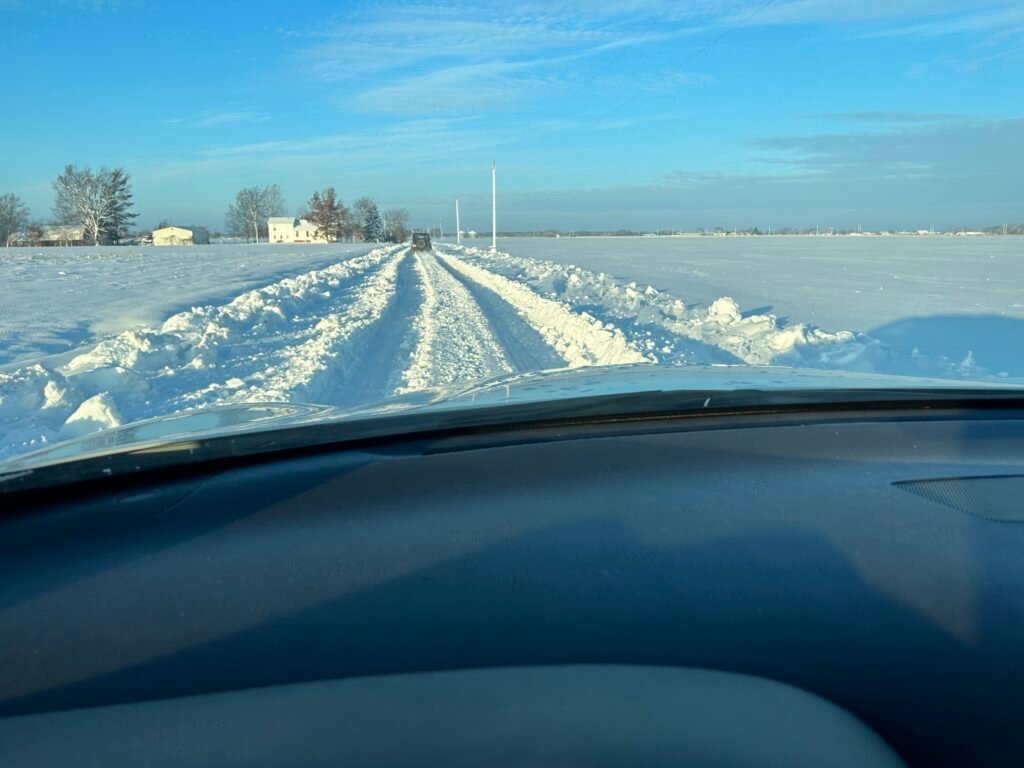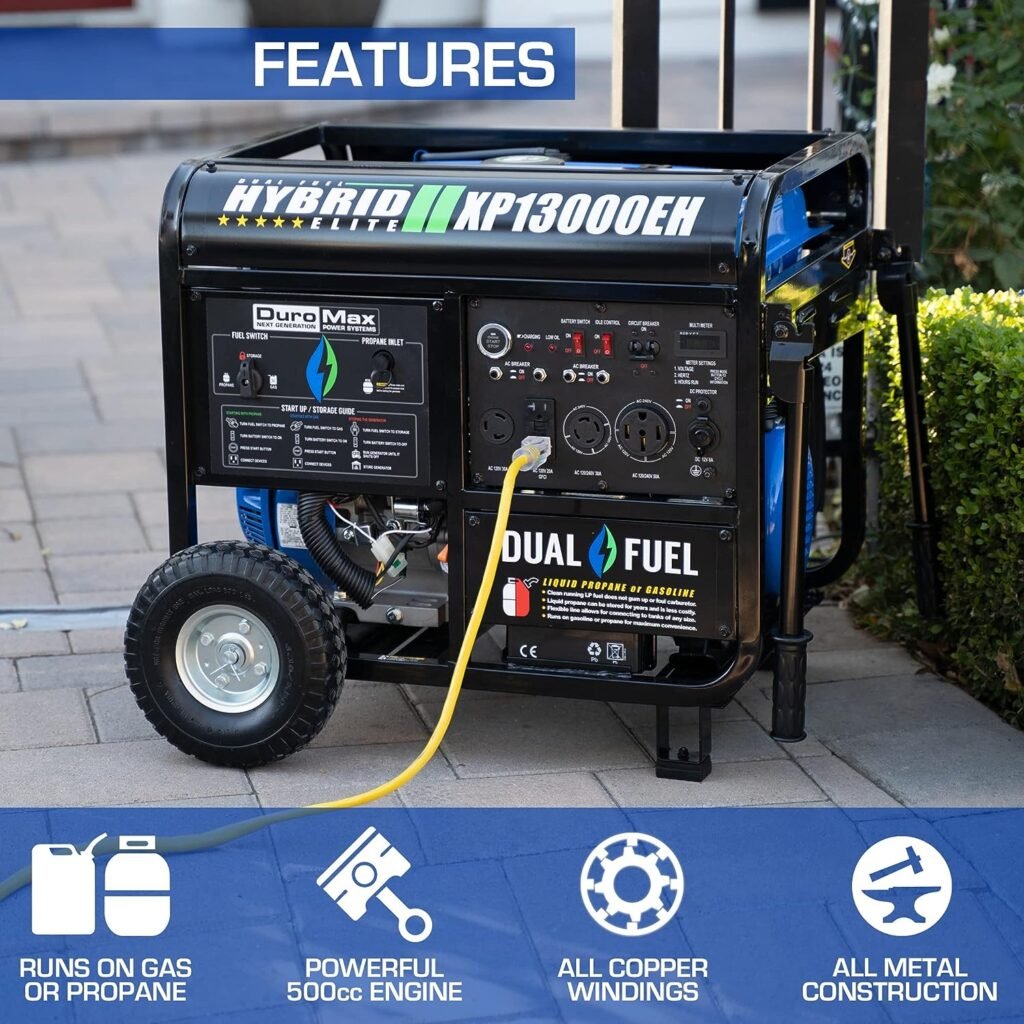Living in a rural area, especially on a farm with a gravel road, presents a unique set of challenges during the winter months. The picturesque scene of a snow-covered landscape can quickly turn into a struggle for mobility and access if one is not adequately prepared. This article serves as your essential guide to thriving in such conditions, offering practical tips and solutions for dealing with snow and cold temperatures. Whether you are a seasoned farmer or new to rural living, understanding how to navigate and maintain your gravel road in the snow, as well as how to effectively prepare for being snowed in, is crucial. With the right knowledge and tools, you can transform these winter challenges into a manageable, and even enjoyable, part of country living.

Understanding the Unique Challenges of Winter on a Rural Farm
Isolation and Accessibility One of the most pressing challenges is the potential for isolation. Snow and ice can render gravel roads nearly impassable, cutting off easy access to town for essential supplies and services. This isolation isn’t just a matter of convenience; it can be a serious issue in emergencies, especially when considering the potential for power outages and reduced access to emergency services.
Maintaining Farm Operations For those who manage a farm, the stakes are even higher. Livestock care doesn’t pause for bad weather; animals need feeding, watering, and protection from the elements. The cold and snow can also endanger crops, farm equipment, and buildings, requiring additional maintenance and vigilance.
Weathering the Cold Rural homes, often older and less insulated than their urban counterparts, face the brunt of freezing temperatures. Keeping a house warm and safe, especially in the event of a power outage, requires foresight and preparation.
Road Maintenance Challenges Gravel roads, common in rural areas, need special attention during winter. Unlike paved roads, gravel can’t be salted as heavily, as it may lead to erosion and other damage. Clearing snow without disturbing the gravel surface adds an extra layer of complexity to road maintenance.
Community and Self-Reliance Living in a rural area often means relying on a combination of self-sufficiency and community support. Neighbors might band together for clearing roads or checking in on each other, highlighting the importance of a strong, cooperative community during these challenging months.

Preparations for Snowfall and Cold Weather
Stocking Essential Supplies The first step is to stock up on necessary supplies. This includes non-perishable food, water, medications, and pet supplies. Remember, trips to the store will be fewer during heavy snowfall, so it’s crucial to have enough to last through extended periods. For insights on winter preparedness, check out this guide.
Ensuring Adequate Heating A reliable heating system is vital. Whether it’s a furnace, a wood-burning stove, or radiators, ensure your heating system is well-maintained and ready for the increased demand. Additionally, keeping a stockpile of wood, if using a stove, or securing a steady supply of fuel for your furnace, is essential.
Preparing Your Home Insulate your home to prevent heat loss. This includes sealing drafts around doors and windows, insulating pipes to prevent freezing, and checking the roof for potential snow accumulation hazards.
Vehicle and Equipment Readiness Ensure your vehicles are winter-ready with antifreeze, snow tires, and an emergency kit. For farms, it’s also crucial to maintain your snow removal equipment, such as plows or tractors, to keep your roads and paths clear.
Caring for Livestock and Pets If you have livestock, ensure they have access to unfrozen water, extra feed, and a warm place to shelter. Pets also need special care, with access to warm indoor spaces. Learn more about keeping your animals hydrated in winter with this DIY chicken waterer guide.
Emergency Preparedness Have a plan for emergencies. This includes knowing how to contact emergency services when needed and having a first aid kit, a generator for power outages, and a plan for staying informed about weather conditions. Check out this guide for more tips.
Need an affordable generator that works well for your needs when the power goes out? check out this DuroMax from amazon!
Road Maintenance and Accessibility in Winter
Snow Removal Strategies The key to keeping your gravel road navigable is regular snow removal. This often involves more than just a simple shovel or a snow blower. Investing in a quality snow plow that can be attached to your vehicle or tractor can make a significant difference. However, plowing a gravel road isn’t the same as clearing a paved surface. It requires a gentle touch to avoid displacing the gravel, meaning the plow should be set slightly above the road surface. Another option is to enlist the services of local snow removal, which can be a lifesaver during heavy snowfalls.
Combating Ice Formation Ice presents a unique challenge, especially on uneven gravel. While salt is commonly used on paved roads, it’s not ideal for gravel as it can erode the surface and harm nearby plant life. A more environmentally friendly and gravel-friendly option is to use sand or small gravel. These materials provide necessary traction without the damaging effects of salt. Regularly applying sand or gravel, especially in known problem spots, will greatly reduce the risk of accidents.
Ensuring Proper Drainage Winter road maintenance isn’t just about reacting to snow and ice; it’s also about preventing problems before they start. Good drainage is crucial to prevent water from pooling and turning into ice. This means keeping ditches and culverts clear of debris and leaves, which can block water flow and lead to dangerous ice patches forming on the road.
Tree and Branch Management Rural roads often run through wooded areas, where heavy snow can cause tree branches to break and fall, blocking the path. Regular inspections and trimming of overhanging branches along your road are essential preventive measures. This not only keeps the road clear but also protects vehicles and pedestrians from potential harm.
Planning for Emergencies Despite the best preparations, sometimes Mother Nature wins, and roads become impassable. It’s vital to have an emergency plan in place. This might include a secondary access route or a pre-arranged agreement with neighbors for assistance. Keeping an emergency kit in your vehicle, including items like blankets, food, water, and a portable charger, is also a good practice.
Energy Independence and Back-Up Systems
Harnessing Renewable Energy with Backup Integrating renewable energy sources like solar panels and wind turbines is a sustainable way to meet your energy needs. However, during winter, when weather conditions can be unpredictable, having a backup is vital. The DuroMax XP13000EH Dual Fuel Portable Generator is an excellent option for such scenarios. It can provide a consistent power supply, ensuring that your renewable systems continue to function effectively, even when solar panels might be temporarily covered with snow.
Wind Power and Backup Generation In areas where wind patterns are consistent, wind turbines can be a valuable addition to your energy arsenal, especially during winter when colder temperatures often bring stronger winds. Pairing this with a reliable backup like the DuroMax XP13000EH ensures that you have a continuous power supply, regardless of weather conditions.
The Role of Backup Generators A backup generator is an indispensable tool for rural living. The DuroMax XP13000EH Dual Fuel Portable Generator, with its capability to run on gas or propane, offers flexibility and reliability. Its 13000-watt capacity can power essential appliances and heating systems during outages. This generator is especially useful in areas where winter storms can lead to frequent power disruptions.
Strategic Energy Planning Planning your energy use strategically can reduce dependence on external sources. This involves utilizing energy-efficient appliances, proper insulation to reduce heating needs, and smart usage of resources. The DuroMax XP13000EH generator can be part of this strategy, providing peace of mind and ensuring that you’re prepared for any situation.
Incorporating these energy solutions, particularly the use of a versatile generator like the DuroMax XP13000EH, will not only provide comfort and convenience but also ensure safety and operational continuity on your rural farm during winter.
Embracing Winter on the Farm: Frequently Asked Questions
How can I keep my livestock warm and safe in extreme cold? Ensuring your livestock has adequate shelter is key. Insulate barns and coops to retain heat and block drafts. Providing extra bedding and ensuring access to unfrozen water is also crucial. Consider heated water troughs or insulated water containers to prevent freezing.
What are the best practices for managing my garden or crops during winter? Winter is an ideal time for planning. Use this period to repair equipment, order seeds, and plan your crop rotations. For certain hardy crops, consider using cold frames or greenhouses to extend the growing season.
How do I ensure my family stays safe and healthy during winter? Keep a well-stocked first-aid kit and ensure everyone knows basic first aid. Pay attention to weather forecasts and advisories. Dress in layers to stay warm, and be aware of signs of frostbite and hypothermia, especially in children and the elderly.
What if I need emergency services and my road is impassable? Always have an alternative plan. This could include an arrangement with neighbors or a secondary access route. Keep your vehicles well-maintained and equipped with emergency supplies, including blankets, food, and a means of communication. At our home, we have a small cheap car for good gas, a cheap truck for hauling things when needed, and a nicer all-wheel-drive SUV to help in winter conditions.
How can I stay connected with the community during winter? Rural areas can feel isolating, especially in winter. Stay connected through local community groups, social media, or by participating in local events. Keeping in touch with neighbors is not only good for your mental health but also creates a support network for times of need. Check out some of our latest community initiatives and custom sign work.
Winter on a rural farm can be a magical experience, but it comes with responsibilities and challenges. By preparing adequately, staying informed, and fostering a strong sense of community, you can ensure that these colder months are as rewarding as they are picturesque.
For more tips and resources on rural living, visit Weaver Family Farms. Happy wintering!



